Honoring the AICP College of Fellows Class of 2020
To celebrate the 2020 Class of Fellows and their achievements, we asked them for their insights about the past, present, and future of planning. See a selection of responses below on topics like social equity, career growth, and the impact of COVID-19 on the planning profession.
Join us in congratulating the full 2020 Class of Fellows.
What was the most pivotal learning experience or transformational moment in your planning career?
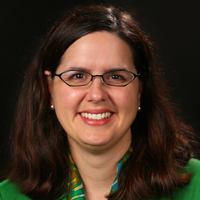
Jennifer Cowley, FAICP
It was engaging in a community — learning how to really listen to a community and then framing proposals based on their values. Environmental protection may not be the right word — but rural preservation is. People care about their communities — you have to find the right words that echo for them.
What advice would you give yourself as a younger planner early in your career?
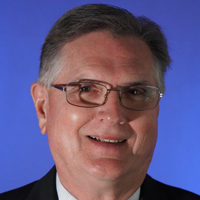
Mart J. Black, FAICP
NEVER stop learning. Continuous education will expose you to new ideas and help you to evolve as a more effective planner.
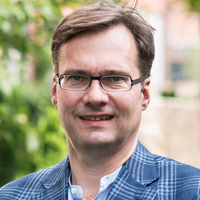
Peter Hendee Brown, FAICP
My advice to a younger me would be to try out some of the other chairs around the city-building table. A young planner can benefit from seeing a process or project from multiple perspectives — that of a city staff person, an elected official, a community group member, a design professional, or a private sector developer. You can also learn by taking positions in the public, private, and non-profit sectors and seeing how different types of organizations view the world and approach their work. In addition to understanding the interests of the other people around the table, you will come to develop respect, understanding, and even empathy for them, too.
From a career management standpoint, broadening your perspective will make you more valuable to yourself and your employer, will expose you to more potential career paths and opportunities, and will allow you pursue your ever-evolving interests throughout a lifetime of meaningful, enjoyable work. I would also advise a younger me to learn how things really work — from where the money comes from to the politics, bureaucracy, and down to who you really need to know to get something done. Last but not least, I would advise taking an incrementalist, implementation-driven approach. As planners, we must always dream big, but the way to realize those big visions is to cause a little bit of real, positive change every day, and the way to do that is to plan and execute good projects that benefit your community.

Stanford Harvey, III, FAICP
I think the breadth of expertise and careers within planning make it both challenging and rewarding. I think it is important in the early part of careers to get varied experience, both public and private and in a variety of areas of planning (economics, environment, built environment, policy, etc.) But I think it is hard to be a standout in all, so I think folks should develop an area of expertise and passion within the field.
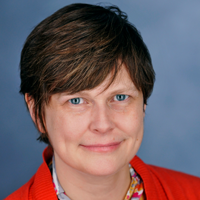
Bonnie J. Johnson, FAICP
As a younger planner, I would tell myself, “Pay attention to planning theory.” As a planning student, I was really interested in developing skills. I did not appreciate that how to think and come at planning from different vantage points would be valuable. I now teach planning theory and I can see where the theoretical foundation of planning allows a planner to be thoughtful and figure out “what’s going on here.” I also know that planning theory can be very narrow and dominated by white males and Western European thinking. The good news is there are other voices out there, we just need to seek them out and listen. Planning theory can help us understand where we are today, and when it includes the riches of other voices, it can serve us well when there are so many unknowns or when we find ourselves in the darkest of places. At mid-career, I would tell myself, “Know your value.” Be an advocate for yourself.

Michelle Gilliam Jordan, FAICP
The advice I would give myself as a young planner just staring my career would be to be curious about all aspects of our profession. It is easy to get focused on one area of planning, and at times you might be intimidated about your ability to master more than one area of our dynamic profession — but you grow as a planner when you have a variety of experiences. I realized early on that having a diversity of experiences opened many doors for opportunities — doors that would not have been opened had I shied away from expanding my planning horizons. There are so many areas in the planning world to explore — environmental, transportation, community development, current planning, long range planning, economic development — just to name a few! So be curious about our incredible profession — you never know where this exciting journey will lead you!
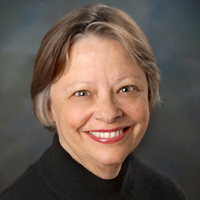
Diane T. Kushlan, FAICP
The planning profession is not for someone seeking immediate gratification. For many years I worked on planning projects that I thought had little consequence for the communities I served. The process for nomination to the College of Fellows required that I reflect back on how I had made positive changes. And I did! And we all do, daily, in the smallest ways that no one acknowledges. So, my advice to myself and to younger planners is to stay patient, diligent and of course, ethical. What we do is important, does make a difference and has lasting value for our citizens and communities.

Alan David Reynolds, FAICP
In addition to becoming a subject matter expert in your specific area of interest, learn about other disciplines and practice areas that are integral to developing effective solutions. Planners are uniquely suited to leading and coordinating interdisciplinary teams and innovative solutions are a result of the interactions among a diverse group of subject matter experts and are most effective when we look at challenges through the eyes of others. I would also encourage obtaining experience on both the public agency and private consulting side of the profession to better understand the perspective of each role.

Stephen E. Tocknell, FAICP
Avoid going it alone whenever possible. Don’t take on more work than you can complete successfully. In planning, humility and collaboration are essential.
How do you think planning will change over the next two decades?
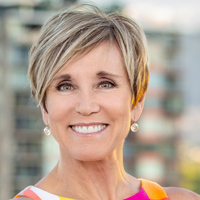
Cynthia J. Albright, FAICP CUD
Planning has changed significantly in the past five years with the onslaught of data extracted from smart phones and devices. We can now understand population movements at a 10-foot accuracy within 15-minute time intervals in order to inform a wide variety of planning specialties: transportation, mobility, health care, site planning, community development, education, campus planning, land use planning, etc. Take courses in school or online that teach you how to understand SQL server, Javascript, R shiny, etc. These programs enable you to handle large datasets with open source code for analysis and visualization. I tell all young professionals I encounter to embrace big data. It’s amazing what it can do for this profession.

David Early, FAICP
The twin crises of racial inequity and COVID-19 have far-reaching implications for the planning profession, which must rise to meet these challenges. The killings of countless African Americans and people of color, by police and through other means, have brought into clear focus the disparities and injustices in American society. Over its history, the planning profession has been a part of this problem, having supported redlining, destruction and separation of neighborhoods through freeway construction, “urban renewal,” displacement, gentrification, and other racist practices. Moreover, the coronavirus has fundamentally altered every aspect of our lives, both now and (most likely) far into the future. Patterns of living, working, recreating and commuting have been disrupted, and will probably never return to their pre-pandemic forms.
The pandemic is also disproportionately affecting communities of color and the poor, further highlighting the inequities in American society. Our profession needs to address these issues in fundamental ways, including: Educating ourselves about — and publicly acknowledging — both the historic racial context of urban planning, as well as planners’ roles in perpetuating systemic and overt racism; Ensuring that our work provides opportunity, lessens inequities, responds to changing conditions, and supports creation of a freer, more just society; Developing new and improved planning solutions that ensure equity, public health, and safety; Maintaining environmental, economic, and social sustainability as watchwords for all our work, even as planning paradigms shift; and Providing meaningful opportunities for local residents to engage in — and actually lead — the planning projects that affect their lives.
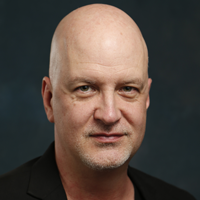
Kyle Ezell, FAICP CUD
I believe planners are among the most compassionate professionals, and our ability to empathize will become even more valuable. Planners have long been concerned about community inequities, though too many of our communities have a long way to go. Beyond making places great, I'm excited about how, over the next 20 years, we have an excellent opportunity to mature our profession by thrusting humanitarian planning into the forefront even more than we do now. I look forward to a more concentrated focus on people, especially considering public health, racial equity, environmental fairness, and increasing access to opportunity — all central to our practice.

Pete Fritz, FAICP
Systemic Racism: It is imperative that planning as a profession acknowledges that we have been implicit in the systemic racism and race bias that has occurred in the past and is still occurring in our communities. I believe that most planners want to make our world a better place and understand the social contract we assume being a professional planner. The reality is that many of us have struggled to help create more equitable places that provide access to wealth and power for people of color. My hope is that our profession will take a hard look at our policies and practices, and make positive change. I anticipate young planners will join us in this challenge and that communities and our profession will empower them to break down barriers of inequity across the United States. Public Health Partnership: I also believe that the planning profession will continue to move toward rediscovering its roots in public health, continuing to create new partnerships with public health professionals. The need for planners to consider the social determinants of health in our work has never been more important. Working together, planners and public health professionals can ensure better health outcomes for all people.

Justin B. Hollander, FAICP, PhD
The biggest shift I expect to come in planning is the fundamental reorganization of how we, as a profession, interact with information and knowledge. For a century, planners have drawn on social science research methods to understand what is happening in communities, from surveys to interviews, from statistical analysis of administrative data sets to qualitative coding of public meeting minutes. But the information age has come and future planning will need to engage with the digital crumbs people leave behind as they browse the web, post on social media, or text from their phone. The massive new sources of insight into where people spend time, what they think of their lives and their communities, and how they travel, require a new set of data collection and analysis techniques for planners to understand the places they live and work in.

Todd M. Kinskey, FAICP
I am hopeful that the current Black Lives Matter movement will cause us all to reexamine our policies and practices so that we can transform communities into more diverse places to live. As a profession, we are expected to plan for all citizens and especially for those that lack a voice at the table. Yet, many of us work in monochromatic communities where our land use rules and policies are fashioned to reinforce the ways of the past. I think planners will be challenged to create more inclusive, diverse communities in the very near future.

Paul G. Van Buskirk, FAICP
Planners will be playing a greater role in planning policy and management of local governments. In the future, many planning activities will be data driven. Planners need to develop skills in the collection, analysis, and validation of data. Included in a planner’s skills should be basic knowledge of statistical analysis, its application and limitations. Also, in our litigation society, planners are called upon to give expert testimony. Another tool for planners is the application of quantitative research methods. These are the tools planners need as they apply models to address the interrelationships between complex systems of population and its demographics, land uses, transportation, economics, environment, and infrastructure. The planner’s universe continues to expand and, in the future, will be disaggregating into highly specialized disciplines.
What originally attracted you to planning, and how has that evolved throughout your career?
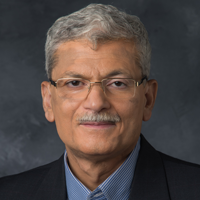
Jerry Anthony, FAICP
Before entering the field of planning, I saw the opportunity to make significant improvements to the quality of life and life chances of a large number of people through planning. I can vividly recall the specific month and year that I decided to enroll for a master's degree in planning. I had just completed my bachelor's degree in architecture and was seeking to enroll in a master's degree either in urban design & conservation or in planning. In the midst of this decision-making process, a tropical cyclone hit India, the country where I was born and raised, killing over 100,000 in a couple of days. News reports in the immediate wake of the tragedy repeatedly highlighted that the victims were very poor, and lived very close to the ocean in areas that were extremely flood prone because they had no choice. It seemed to me that those people were sitting ducks, sure to die sooner or later, and doomed to struggle and suffer every day while alive.
Even from the little I knew of planning then, I knew that with training in planning I could help lots of people — especially low-income people such as those that died in that disaster — survive and thrive. So I signed up for a master's in planning — and have had a wonderfully fulfilling life every day, every year for over 25 years now. While dealing with day-to-day (or semester-by-semester) professional responsibilities, it is easy to forget about the immense potential for positively impacting society through planning. And so on a fairly regular basis, I take a "time-out" to remind myself about this potential, and emerge recharged to seek opportunities to make people's lives better.
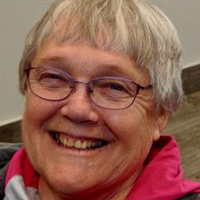
Dee Caputo, FAICP
I am a camper; I’ve spent years with my children recreating on public lands overnight. While camping during college years, I witnessed the apparent, wholesale slaughter of forest lands in the West; I began to investigate. I learned about this topic so I could contribute toward future solutions. I suspected I’d pursue a career in resource conservation and management. My college professor, Ralph Lewis, suggested I consider becoming a land use planner instead. Initially, I rebelled against becoming an urban planner because I prefer rural persuasions. I was fortunate to discover planning can accommodate anyone interested in this profession. I secured my first job at a rural local government which satisfied me for a decade. For over 15 years afterwards, I assisted both urban and rural jurisdictions in completing state-mandated growth management requirements, providing technical and financial support. I’ve loved learning, teaching, and interacting. To meet the needs of each community, planning is an ongoing challenge requiring enormous communication, cooperation and coordination. Conservation of natural resources remains key to success. (I STILL Love camping!)
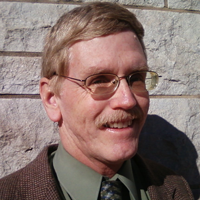
Larry J. Hopper Sr., FAICP
I really wanted my vocation to more directly help people, build something and make a broad difference in the everyday world in which we live. While taking a general geography course as a sophomore, I realized I liked the idea of solving city problems, so I inquired about the regional and city planning program at the University of Oklahoma (among the very oldest and best west of the Mississippi). I soon changed my major from psychology to geography, and earned the MRCP and never really looked back. What I sensed and loved in college, and later, was how planning overlaps the physical, social, and economic realms, and how it appeared to be a vocation where an idealist could be happy and make a decent living.
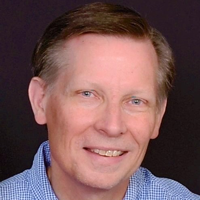
Gary Mitchell, FAICP
I was fortunate to first encounter and appreciate planning as a real career option while surrounded by other graduate students from varied backgrounds. I came to planning from an undergraduate focus on journalism and economics, after growing up saying I would be an architect someday. I quickly realized the value of melding so many unique perspectives and life experiences during a planning process. Because of economics, I was often tagged as the team member who could make sense of numbers, highlight trade-offs, and push the importance of prioritizing action agendas in the face of limited resources. Later in a project, because of my years of writing and editing as a budding journalist, I was relied upon to tighten the written message and make plans more inspiring and persuasive through effective blending of words and images.
It strikes me that as the world around us has grown ever more complex and faster-paced, planning has necessarily become another profession where specialists are increasingly valued. Just look at the range of topics covered by APA publications and policy guides, not to mention the AICP exam, and you quickly get a sense of how extensively our profession aims to make a difference. Yet amid all this evolution and specialization, the ability to bring meaning to “data,” think broadly, and communicate effectively remain touchstones of our success as planners. Our statements of ethical principles have long cited our duty to promote and advance equity. No change there either, but expectations and urgency are on the rise.

Steven J. Sadwick, FAICP
My attraction to planning started an early age, although I didn’t have an understanding what it actually entailed. Growing up in a first ring suburb of the city of Rochester, New York, I learned a lot about neighborhoods through my experiences and stories from my father. My childhood neighborhood was an extension of the city’s grid system. The easy flow of traffic and sidewalks on every street worked well. Neighborhood elementary schools and corner stores within walking distance seemed to make sense. My dad’s stories of grand movie palaces in the city, relatives living in the neighborhood and downtown shopping fascinated me. From the back seat of his car, I would see demolitions sites and feel a sense of loss. Leaving the old neighborhood for the exurbs led me to a new environment with different experiences. Sidewalks disappeared, school buses were necessary and everything was automobile oriented. These contrasting experiences sharpened my interest in planning. I was still unaware of what planning was at the time. It wasn’t until after my undergraduate studies and four years of active duty in the Navy that I saw on the nightly news a story about Seaside, Florida. The discussion of the principles of new urbanism made sense and everything fell into place. I had an understanding of how the built environment impacted social interactions and pursued a career in planning. To this day, I still recognize the importance of these interactions and I am at a place where I can have an impact.
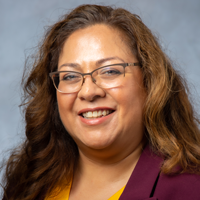
Veronica R. Soto, FAICP
I fell in love with maps and how they can quickly convey information. The stories of people that go along with the first maps I ever did remain with me — it was maps showing housing rehab investment — and the difference that investment made in their life is what drew me to planning as a profession. I continue to use data to shape planning decisions and the maps gave gotten fancier and more complex, but the love of maps remains.
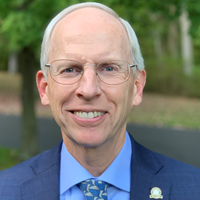
Daniel J. Van Abs, FAICP
The focus of my education was environmental science, not planning, but I also was interested in policy and program implementation. As a result, a few planning courses snuck into my curriculum at Rutgers and then SUNY-ESF where I pursued my doctorate. My career could have gone either way, science or policy, but the last nearly 40 years have been spent in environmental management, which inevitably involves both science and planning. So, a decade into my career I decided to make it official and became a certified planner, which has provided a great foundation and network. Over my career, some environmental issues have been solved, or at least controlled, while others emerge. However, the fundamentals haven’t changed — how we use and abuse energy, chemicals, land, ecosystems, people and structures all link planning, science and society. I am just as motivated by the issues now as 40 years ago.
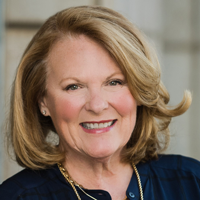
Susan Alice Wood, FAICP
I started my career life as a geologist, a science that includes the study of land and landforms and how they came to be. My interest in planning started from a love of the land, our natural environment, and open spaces. Ultimately, I found myself in land use and community planning and later transportation. Over time, my interest in planning evolved to people, which is what I believe should always be our unwavering focus as planners. Whether we are working in land use, transportation, or other planning specialties, our first consideration must always be the effect of plans and development on people — ALL people. While that also involves stewardship of the land and our environment, at the heart of all we do must be a concern for the effect on people. If our work benefits community members, consequently it will benefit communities overall. If we are not using a human-focus, we are not implementing practices to address the inequities that exist in our world today. This is the most important and long-lasting contribution we can make through our work as planners.
How do you think the current coronavirus pandemic will affect planning?

Grace E. Fielder, FAICP
The pandemic has opened the conversation to a more universal one. It has underscored the challenges to society and underscored the best and worst of our system. It is both an opportunity and challenge for us to learn from and use it as an instrument of change and not just document the event. Change for all people and the environment.
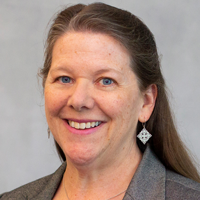
Lorna Parkins, FAICP
The pandemic is a colossally disruptive event, and planners must be proactive, nimble, and innovative in shaping the resulting community changes for the good of all. In my field of transportation planning, we have seen the pandemic cause dramatic changes in travel behavior. Planning for the short-, mid-, and long-range future is complicated by the uncertainties around the recovery scenarios for the pandemic and economic recession, as well as other drivers of change that will shape future land use and socioeconomics in new and different ways.
Scenario planning is an important tool to create productive conversations around planning for uncertainty, and I envision it will become an increasingly important tool to enable planners to be more nimble and adaptive in our practices. Thinking through uncertainties leads to better preparation, and better preparation saves precious time when disruptions happen. Planners should lead communities to think ahead using methods that prepare us to be resilient in the face of adversity, creating more positive and equitable outcomes.
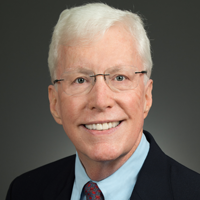
David William Woods, FAICP
The COVID-19 pandemic, economic recession, and international protests against police violence that unfairly targets people of color have laid bare many interlinked inequities in American communities by showing just how fragile so many people’s daily lives are. The role of planners is to work with all of their communities’ stakeholders to create livable conditions for everyone. In collaboration with these stakeholders, planners must initiate, or support emerging efforts to make their communities more livable, sustainable, and equitable by focusing on the following key elements of cities and neighborhoods that work:
Well-built, well-located, inclusive, attractive housing affordable at all income levels; Affordable, accessible transportation that goes where people need to go; Free or deeply affordable health care for all at readily accessible locations; Locality-specific economic development, including light industry, retail and small businesses, and spaces for artists and artisans; Diverse, well-compensated, worth-while jobs and business opportunities for local residents; Diverse, excellent educational opportunities in attractive, well-equipped, community welcoming places; Beautiful, complete, attractive and safe streets that invite pedestrians and bicycles; Locally-based community-sensitive police and fire protection; Attractive, flexible and inclusive parks and open spaces; Diversity-inclusive community gardens and farmers markets; and public spaces for community celebrations, conversations and expressions of dissent.
Who was your greatest professional influence and inspiration as a planner?

Henry F. Bittaker, FAICP
Shortly after I started at Florida’s growth management agency, I made my first recommendation on a major challenge to the local approval of a large development based on transportation impacts. After making a brief presentation of the issues involved, my agency head, Dr. John DeGrove, FAICP, who developed Florida’s growth management program, responded to me that “If that’s what you think we should do, let’s go with it.” He totally empowered me as a planner, and continued to do so for many years. Tom Pelham, FAICP, later became my state agency head and we (and the agency) had a prior history of being involved on the opposite sides of highly contentious development projects. I remember one highly controversial endangered species rule I was working on when he came to my office and asked to see all the comment letters we had received as it was being reported that I was being very biased in incorporating public input into the draft rule. After sitting behind me for several hours looking through all the marked up comment letters we had received and seeing how they were being reflected in the current draft of the rule, he informed me that he was going to tell everyone complaining to him that he didn’t know how I could have been any fairer in reflecting public input into the rule. He taught me to focus on my role as a planner and avoid the politics. He became our planners’ biggest advocate.

Scot D. Siegel, FAICP
The planners who have inspired me the most are those with significant experience in the public, private, and nonprofit sectors, like myself. If more planners, particularly those in regulatory roles, understood how businesses actually work, including the risks that business owners must take to stay open and employ people, they would be more effective in serving the public. Having experience in all three areas — public, private, and nonprofit — provides balance and helps one appreciate how people in government, business, and advocacy roles all need to work together to advance society in ways that are equitable, economically viable, and environmentally sound.
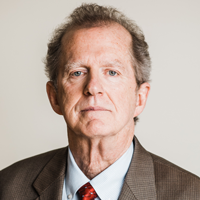
John I. Trawick, FAICP
The writer, observer, and critic Grady Clay, who became a mentor in 1983 and good friend until his death in 2013. Shortly after he had served as chair of the competition jury for design of the Vietnam Veterans’ Memorial in Washington, I came to know Grady when he agreed to chair a competition for a memorial to Frederick Law Olmsted in Louisville for which the organization I was leading — the Louisville Community Design Center — had been commissioned to act as professional advisor. Grady Clay’s career spanned over seven decades, encompassing the classic period of post-war city planning that brought him into close association with other great writers, planners, and thinkers of the period — Jane Jacobs, R. Buckminster Fuller, Roberto Burle Marx, C. A. Doxiadis. It was, of course, a gift for me to learn through Grady about these and others; but, much more importantly, I learned from Grady a uniquely nuanced perspective on urbanism — the importance of critical thinking and writing as a way of viewing beneath the surface of things in an attempt to identify essential values, as well as to call out the expedient and misguided thinking that has too often been the tragic flaw of American city planning.
Why is planning uniquely important to communities?

M. Rory Bolger, FAICP
For under-resourced communities, planning affords the opportunity to say “yes” to land uses that had previously been underground and unlawful — a single, minority mom who operated state-licensed childcare out of her home got off the courtroom hook when the planning commission’s efforts led to a zoning amendment to declare home childcare for up to six kids an accessory use to a dwelling. Planning also affords the opportunity to say “no” to obnoxious and exploitative land uses — planning commission research in the early 1990s confirmed that billboards in poorer neighborhoods disproportionately advertised alcohol and tobacco to a statistically significant degree; grassroots organizations celebrated the resulting ordinance that prohibited such advertising near land uses frequented by minors. I was proud to have authored these ordinances that were called for by courageous and far-sighted elected officials.

Richard Carlisle, FAICP
Planning offers the unique opportunity for citizens to directly influence the future of their community. When you think about it, name any function of government that gives citizens more ability to shape the future of where they live. While sometimes it can be both emotional and frustrating, it also provides planners an incredible opportunity to use every skill in listening, communicating, and responding. There have been many times in my career when I have felt both a sense of accomplishment, as well as the sting of criticism. However, I have never had as strong an impression made on me when given a backhanded compliment by a prominent citizen from a community I had worked in for a long time. Sitting in my office one day, I received a call from this person who started out, “You know Mr. Carlisle, sometimes I thought you were a real jerk. But when I look around and see how much our town has improved, keep it up.” I felt I had arrived as a planner.


